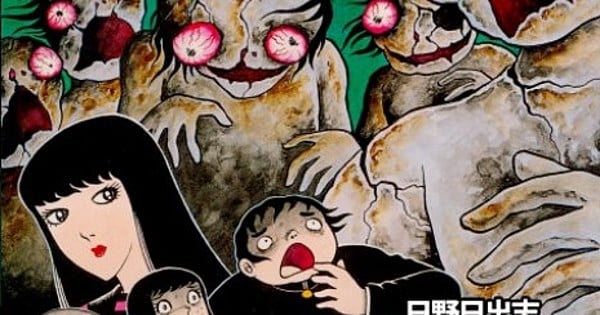Curated From www.animenewsnetwork.com Check Them Out For More Content.
There is one abiding rule that horror stories need to follow: do not pull your punches. That goes for whatever demographic you’re writing for, and in my opinion, nothing will ruin a horror story faster than an ending that wraps everything up too neatly. Sadly, Hideshi Hino‘s Occult Detective Club: Graveyard of the Death Dolls does exactly that, ending its tale of fear with the members of the titular club making plans to go to Tokyo Disney. If this were a more Scooby-Doo story in the first place, the ending would be less egregious, but since the rest of the book is genuinely scary, it feels like Hino decided that a creepy ending would be too much for his middle-grade female readership – the series ran in Suspiria, a female-oriented magazine. It’s too bad because Hino deserves his reputation as a horror manga master.
We can easily see that here, even though the ending is disappointing. This is a solid work of 1986 horror, with art that mimics the basic shoujo manga style of the period, twisted just so to make it upsetting. The story takes place in a middle school occult research club that has earned a reputation for solving supernatural crimes thanks to its preternaturally beautiful club president, Fuyumi. Although her beauty catches people’s attention, she’s got more going for her than just that: her dad’s a leading occult scientist, and when she brings the club to tour his private museum, new member Chiko is possessed by the soul of a cursed hair-growing doll. Things escalate very quickly – Chiko begins having terrible nightmares featuring the doll and some of its terrible friends, to the point where the poor girl can barely cope. She’s afraid to sleep, can’t figure out her dreams, and she finally turns to Fuyumi for help, both as an upperclassman and as someone with a reputation for being able to solve such problems.
Fuyumi is more than happy to help, and she quickly musters the club and her store of information from her father. She genuinely wants to help Chiko and the rest of the club is always fine following her lead, culminating in the group taking a trip to the Graveyard of the Death Dolls to figure out why the dolls have it in for Chiko, with the answer being a sort of dark riff on Toy Story. Remember not to just abandon or throw away your toys, kids. The idea of a doll graveyard rears its head in multiple cultures in one way or another, and Hino is likely working with the version of Buddhist temples like Jogan-ji Temple’s funeral service for dolls, which is intended to lay dolls’ spirits to rest and prevent cases like the one Chiko finds herself in. Other cultures may have different ways of incorporating dolls into the afterlife, with the dollhouse graves in the U.S. from the late 19th and early 20th centuries being an interesting example.
Hino, who has been a staple in the Japanese horror scene for quite some time, has a remarkable facility for drawing crumbling, broken, knife-wielding dolls and making them actually scary. I’m not creeped out by dolls, but these, with their missing pieces and bulging glass eyes, risk popping up in my nightmares, armed with rusty nails and tiny knives as they chase Chiko across town. It almost doesn’t matter what their motivation is; they’re just scary in that way only broken and abandoned things can be. The fact that Hino doesn’t use many gray tones in his art definitely helps as well – things are deep, unrelenting black or they aren’t. This strong contrast helps to drive home the unsettling nature of the dolls, while Fuyumi’s unearthly, too-mature beauty also adds to the uncanny nature of the work. It’s a story adept at letting our own imaginations fill in the blanks.
Dating to 1986 does come with its issues, mostly in the form of shaming the cowardly overweight character Dai; people repeatedly tell him how stupid it is for him to be afraid of things when he’s so big, because apparently in the 80s people equated courage with physical size. He’s also shamed for being a boy who has fears, and there’s one small racist image in the museum chapter. But mostly this is a good, genuinely creepy story that desperately needed a different ending. It didn’t have to be a sad or scary ending, but talking about someone wetting themselves on Space Mountain after fighting off a horde of stabby killer dolls just doesn’t work, and the ending undoes a lot of what came before.
